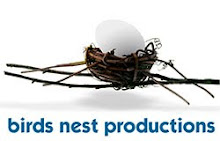Sunday, April 25, 2010
Morocco: Making a Difference
Hi everyone,
As most of you know, I spent last week in Morocco, an Arab country situated on the Northwestern tip of Africa. Moroccans often refer to it as a crossroads between Europe and the Middle East.
As a board member for Earth Day Network, I learned about Morocco’s unique commitment to environmental issues over the past year. The more I learned, the more I was inspired. As Morocco’s movement progressed, I recognized that something extraordinary was happening and that the country’s efforts merited special attention.
In late 2009, Earth Day Network unanimously selected Rabat (Morocco’s capital), along with Buenos Aires, Tokyo, Kolkata, Washington D.C., and New York, to be a partner in Earth Day’s 40th Anniversary celebration. It would be the first time an Arab nation would host this world event, and be credited for its cutting-edge series of projects for environmental conservation.
"Rabat was chosen as a premier city to host Earth Day Celebrations for its commitment to the environment and strategic vision for the future,” said Gerald Torres, Chairman of Earth Day Network.
Earth Day board members and staff could have attended any one of the major events around the world. We were solicited to appear at more than one event, which would have incurred a host of travel appointments and scheduling conflicts.
We chose to come to Morocco and stay for the four-day celebration because of the uniqueness of the country’s commitment; Morocco has become a leader in environmental issues in a part of the world where the environment is often low on the agenda.
Shortly after our arrival in Casablanca, we drove to Rabat and saw some of the most green, lush, and open farmlands we could remember.
We saw miles of trees, parks, and forests. Naturally, my initial impression was that Morocco had no environmental problems at all. But, like every part of the world, the country is confronted with alarming challenges.
Farmers are experiencing the effects of climate change. Their crops are becoming scarcer and taking longer to grow.
Along the country’s beautiful Atlantic coastline, fishermen are reeling in fewer fish than they used to due to increasing air and water pollution.
There are other environmental issues that aren’t unique to Morocco. What is unique is about Morocco is that they are doing something about it. During Earth Day’s 40th Anniversary, the Moroccan government announced a multi-billion dollar series of projects aimed at improving the environment.
New restrictions and standards, as well as a “green tax” for violators, will be implemented for the first time.
The plan also includes a large investment in clean transportation, solar energy, and wind power. Most importantly, there will be a major emphasis on education.
I visited a school which emphasizes environmental responsibility in its curriculum, proof that the message is reaching a younger generation.
"We must manage to mobilize the youth so that we can preserve the environment for generations to come,” insisted Rabat Mayor Fathallah Oulaelou.
The environment and the economy are more intimately linked in Morocco than in most places.
At least 40% of its inhabitants survive off of the fishing industry. Millions of other Moroccans make a living in the tourism and hospitality industries.
The country has little choice but to be progressive on environmental issues, and they are doing it.
I know that, upon my return, people will ask if the Moroccan government will be able to deliver on its promises. After what we have seen here, we sincerely believe that Morocco is serious and committed.
Happy Earth Day to all, not just this week, but all year round.
Warmly,
Avis
Subscribe to:
Post Comments (Atom)


No comments:
Post a Comment